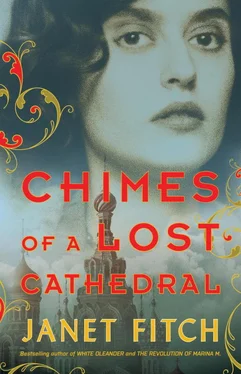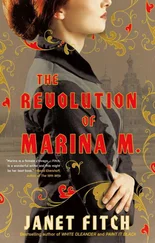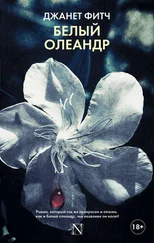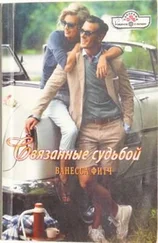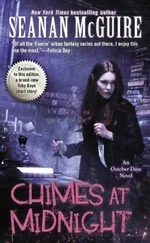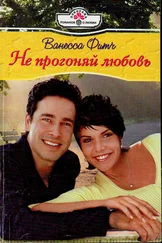We rode along, enjoying the sun and the wind and the roar, happy to be together again, as we always should have been. Then the wind shifted and gave us a face full of smoke and cinders, everyone covered their noses and mouths, coughing, eyes stinging, before it cleared out again. Ah, the song of it all, the train, the fields green, the tiny villages nestled against the forest way out in the distance. The engineer pulled the whistle, and though it deafened you, the villagers would hear the train, and see us, bright on the horizon, and know they hadn’t been left out here all alone, that the revolution hadn’t forgotten them. They too were part of the Future. That was our task, to move behind the front and remind the peasants they had to keep the Red Army fed, to support what was being done for them, and not turn on our troops, not weaken us from the rear.
I wondered when we would get to the front. Hard to know. We should have already been there, but we’d been sidelined again and again in favor of troop trains, or else our destination revised overnight due to a sabotaged bridge or track. In the end, what did it matter where we were or when we got there? “The villages are more important than the towns,” our commissar, Marfa Yermilova, inevitably reminded us. “The workers already know which side they’re on. Kolchak’s troops check the palms of prisoners, and hang the ones with calluses. It’s as good as a party card. But the villagers can go either way.”
At the moment, Kolchak and his general, Gaida, were being pushed back to the Urals. The revolution had them on the run, but the war moved like the waves, fronts were fluid, anything could happen on any day—the fleetness of cavalry, the surprise of local partisans. And you could never put aside the potential for pure peasant revolt against whoever’s troops were most recently marching through. A far cry from the trenches of the last war.
And now we were riding into the thick of it, as full of fire as the locomotive pulling us eastward. My heart crashed in perfect time with the heartbeat of the Red October. Me and Genya, together again, heading toward the battle zone, his chest supporting my back, which didn’t even ache anymore, not at the moment, the shaking of the train loosened all the knots.
“I’m so glad I found you,” he was saying in my ear. “And in that shithole. I hate those towns. They make me feel like I’m suffocating, just the look of them.”
He understood. He came from a town smaller than Tikhvin. People thought it was safe in little burgs like that, that they could escape the chaos of the cities, but it was so stifling, without any of the city’s expansive joy. Lock the doors and the windows, then peek out from the curtains… Korsakova, Sergeevna, all of them. I still couldn’t believe I’d escaped.
“The look on that guy’s face.” Genya laughed, nestling his cheek against my kerchief. “Don’t leave me, you whore!”
Poor Styopa. What a nightmare. I couldn’t bring myself to laugh at his misery. “He wanted me to divorce you,” I said over my shoulder. “He was quite a catch around there. Category 1 rations.” Marrying someone for his rations, what a world. How near I’d been to giving up. That was the real world, Genya, a match like that more common than love. This was the dream.
“You wouldn’t really have married him, would you?” Insecurity creeping into his voice.
So many choices I’d never thought I’d have to make in this life. “I was hoping something else would come along.”
“You wouldn’t have, though. Not in a million years.”
As if he really knew me, knew what I was capable of doing with my back against the wall. Who ever knew another person so well? Not even we ourselves. I’d been a half-dozen different people since the day he crushed that silver-framed icon on the floor of the Poverty Artel.
“Honestly, I don’t know who I am anymore.”
“You’re Marina Makarova,” he said, kissing my cheek. “The girl I met at Wolf’s in the green coat with a white fur hat, dogged by her disapproving English governess.”
I blushed, hoping the sailor hadn’t heard. My labor book said proletarian. That day at Wolf’s bookstore with Miss Haddon-Finch… If anyone had told me on that day that in five years I would be pregnant and riding on the roof of the agit-train Red October, wedged between my poet husband and a Kronstadt sailor… You’re an adventurer, Arkady had once said. Was it true? That brave, thoughtless girl? It was a long way from that girl to this one, a long, winding road. And a long way to go.
All around us the soldiers were lounging, smoking, lying on their small packs, their guns tucked under their arms. They didn’t talk much, they sang or watched the horizon or slept on their rolled sheepskins. At night they made a fire away from the train, and I could hear their songs and laughter. Sometimes they went into a village for food and women. I hoped they paid for it, or at least didn’t attack anyone. But there was always that possibility. Even to us they always seemed a little dangerous, like a dog who was good when its master was around but you could never wholly trust on its own. Their faces were too similar to those I’d seen in the villages, to the ones who had taken Maryino, their cruelty as ready as their generosity.
Genya shouted in my ear over the roar of the wind. “I should never have abandoned you, that day at the station. I’ve had plenty of time to regret it.”
“I wish I’d gone with you.” With all my heart. I wanted to tell him something true, my big tender boy-man, something real. “I saw you after that. At the Miniature Theater. During First Anniversary.”
His hands clutched me and I found myself looking up into his wild face, his deep hazel-green eyes searching mine like a man studying an icon’s fabled tears, trying to decide if they were real. “You were there? Why didn’t you stay? I came to Petrograd to find you!”
Of course I couldn’t tell him why. “I got lost.” That was the truth.
“What do you mean lost? How far was it to the stage?”
“Farther than you can imagine,” I said. I hated being interrogated, hated it with the fury of someone without an alibi.
“Why are you being so mysterious? I hate mysteries!” He shook me like a man shaking sand from his boots. “Have you been planted on this earth to torment me?”
“Easy, brother,” said the sailor.
Would he hit me? Would he throw me from the train? “God, I hate mysteries!” he shouted again, and let me go.
The sailor glanced over, his pale blue eyes grinning. “Then you better forget about women, brother.” The other hitchhikers laughed. “Might as well give in and enjoy ’er, we’ll all be dead soon enough.”
Genya’s fit of temper seeped away. He was like that, his rages flared and subsided, but the ruddy tone of his face had drained to ashes. Well, perhaps that was what I was on earth for, to be the chaos in other people’s lives. Who can know what Fate has in store, the effect we’ll have on the lives of others, even the ones we love most dearly? Especially them. I took his great hand, pressed it to my cheek. It smelled of graphite and printer’s ink. “Look, for some reason we’ve found each other again. Let’s not quarrel.”
“I came to Petrograd to find you,” he said again. “And you were there, and you just left?”
I kissed his palm. I had to find something to distract him, like a mother substituting a toy for the sharp object in her child’s careless hands. “I saw you at the kino too. I went with Mina. You were a regular Fairbanks!” I knew I shouldn’t laugh, but I couldn’t help it. “Our Charlie .”
There it was, his bashful grin. “It was shit. A stupid stunt.”
Читать дальше
